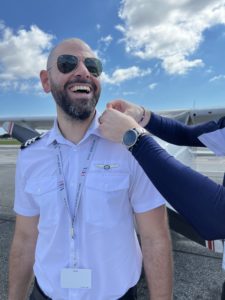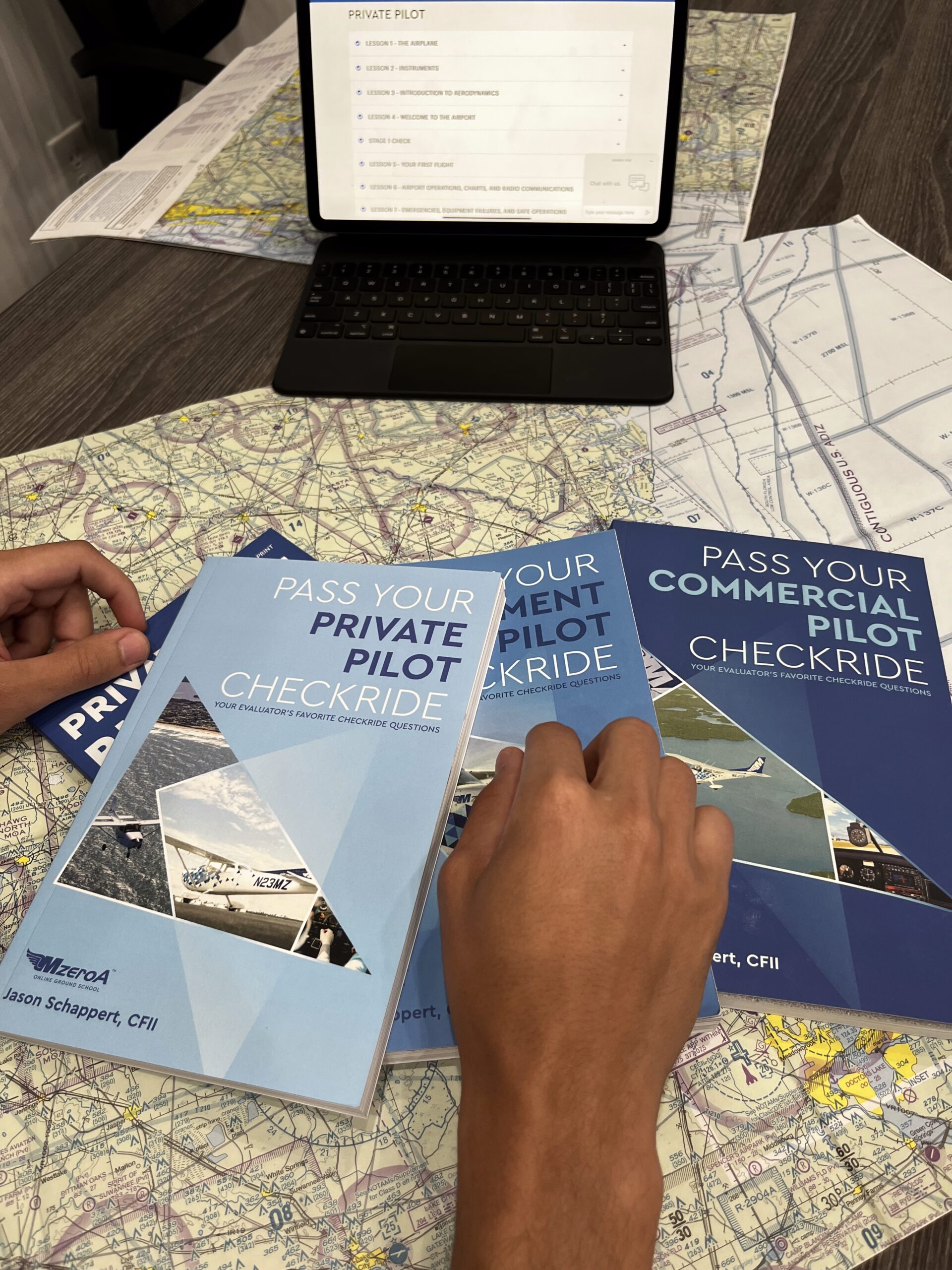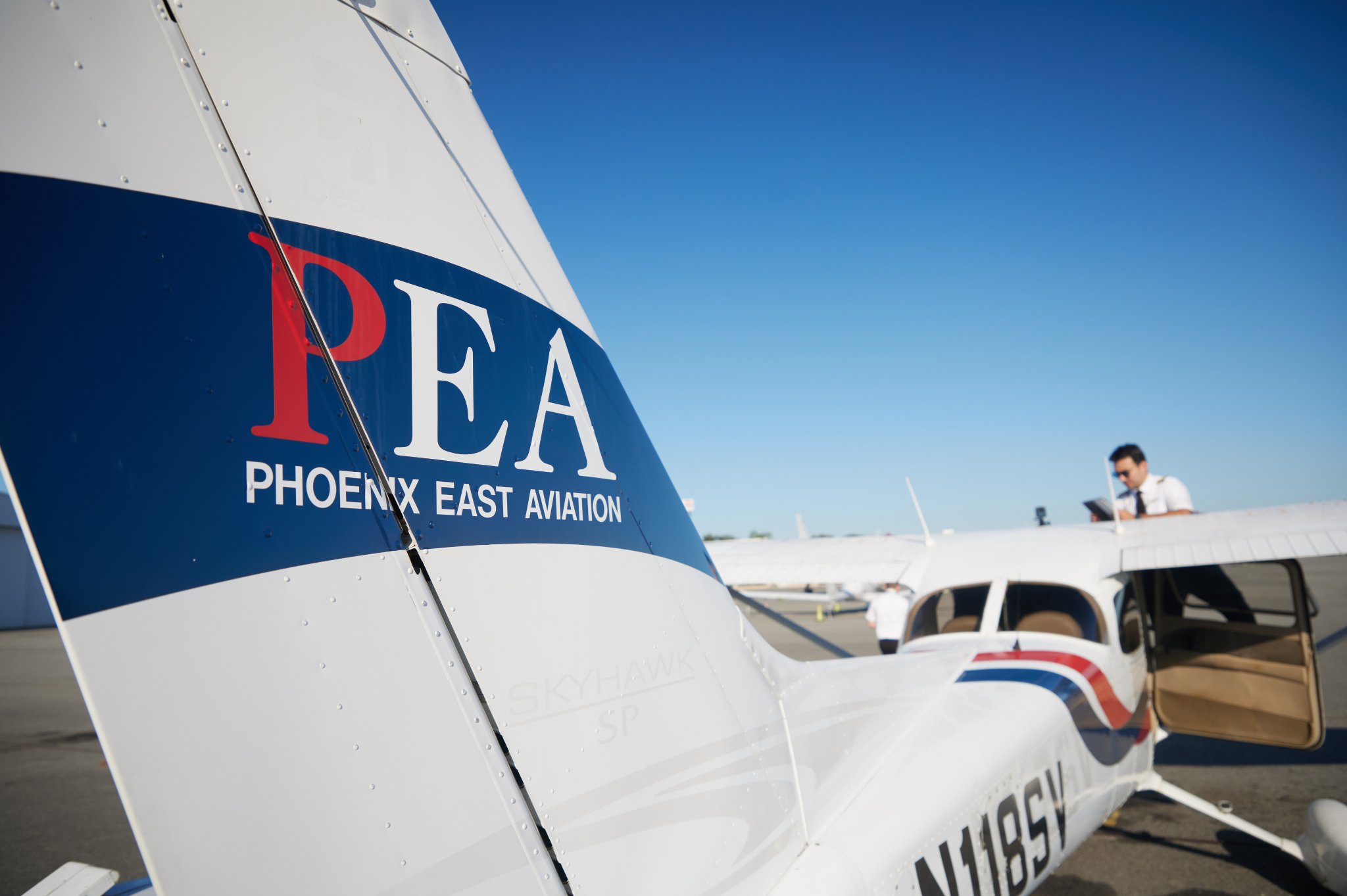Fast Track Flight Schools: How an Accelerated Program Works
Looking to earn pilot’s licenses and certifications quickly? As an alternative to the standard flight training track, Phoenix East Aviation (PEA) offers students an accelerated program for those who are eager to fast-track their aviation journey, selecting a path that best fits their chosen timeline. Students should note that the quality of the curriculum will not differ regardless of whether they choose the accelerated or standard track. Choosing to follow the accelerated program influences speed and courseload rigor but does not affect content or quality.
Private Pilot License
 There are several certifications and licenses that students will obtain during both the accelerated and standard flight tracks, the first of which is a private pilot license. A private pilot license is essentially a “driver’s license” in aviation, allowing an individual to fly an aircraft without being paid. This license allows students to earn flight training hours that are necessary for advancing along their selected flight training track and obtaining additional licenses and certifications.
There are several certifications and licenses that students will obtain during both the accelerated and standard flight tracks, the first of which is a private pilot license. A private pilot license is essentially a “driver’s license” in aviation, allowing an individual to fly an aircraft without being paid. This license allows students to earn flight training hours that are necessary for advancing along their selected flight training track and obtaining additional licenses and certifications.
For those opting for the accelerated program, it allows for the potential of earning a private pilot license in three months as opposed to the standard track’s four.
Instrument Rating
Next, students will work toward obtaining an Instrument Rating. An Instrument Rating ensures that pilots can fly using the tools and devices within a flight deck, otherwise known as instruments, without needing visual references outside of the aircraft. This is also known as flying under Instrument Flight Rules (IFR), which is a necessary skill for commercial airline pilots especially since the majority of a flight’s duration occurs above the clouds without visual landmarks.
PEA’s accelerated program sets the timeline for receiving an instrument rating at roughly a month and a half, while the standard track requires an additional month.
Commercial Pilot License
Pilots who obtain a Commercial Pilot License, are able to fly for compensation, and can be hired for flying. This can be completed in two and a half months on the accelerated track as opposed to three months on the standard track.
Multi-Engine Rating
Acquiring a Multi-Engine Rating allows pilots to fly planes that have more than one engine, which is a requirement for airline pilots. This will take a month under the accelerated program or a month and a half for the standard track.
Certified Flight Instructor Licenses and Certifications
 Becoming a Certified Flight Instructor enables pilots to continue earning flight hours while also being paid and gaining more aviation experience by teaching aspiring pilots. This typically takes two months under the accelerated program versus three and a half months under the standard track.
Becoming a Certified Flight Instructor enables pilots to continue earning flight hours while also being paid and gaining more aviation experience by teaching aspiring pilots. This typically takes two months under the accelerated program versus three and a half months under the standard track.
Similarly, a Certified Flight Instructor Instrument (CFII) rating provides instructors with expertise necessary to teach students under IFR. This takes one month in the accelerated program and two months on the standard track.
Lastly, instructors with a Multi-Engine Instructor License (MEI) are able to train students to achieve a multi-engine rating. This license can be achieved in one month in the accelerated program and a month and a half on the standard track.
Benefits of an Accelerated Flight Training Program
The current pilot shortage in the aviation industry has created a unique opportunity for aspiring pilots. Accelerated flight training programs allow students to gain the necessary skills and certificates at a quicker pace, being one step closer to becoming a commercial airline pilot. PEA’s accelerated flight program sets future pilots up for a successful career within the aviation industry in roughly 12 months as opposed to the standard track’s 18. In essence, the accelerated flight training program helps bridge the gap between aspiring pilots and the aviation industry’s need for qualified professionals.
What to Consider Before Choosing a Fast Track Flight School
Choosing the right flight training program and school is a personal decision that should align with the learning style and goals of an individual. PEA’s accelerated flight program offers an opportunity for those who thrive in intensive learning environments. This program is ideal for students who are passionate about aviation and ready to fully immerse themselves in their flight training. The accelerated pace also allows each student pilot to learn rapidly and retain information. While accelerated programs can be challenging, they often bring out the best in motivated students, pushing them to achieve their aviation dreams in record time. A fast track can be both an exhilarating and rewarding journey to becoming a professional pilot.
Interested in learning more information in regards to Phoenix East Aviation and their flight training programs? Contact info2@pea.com to get in touch with their Admissions Department.




